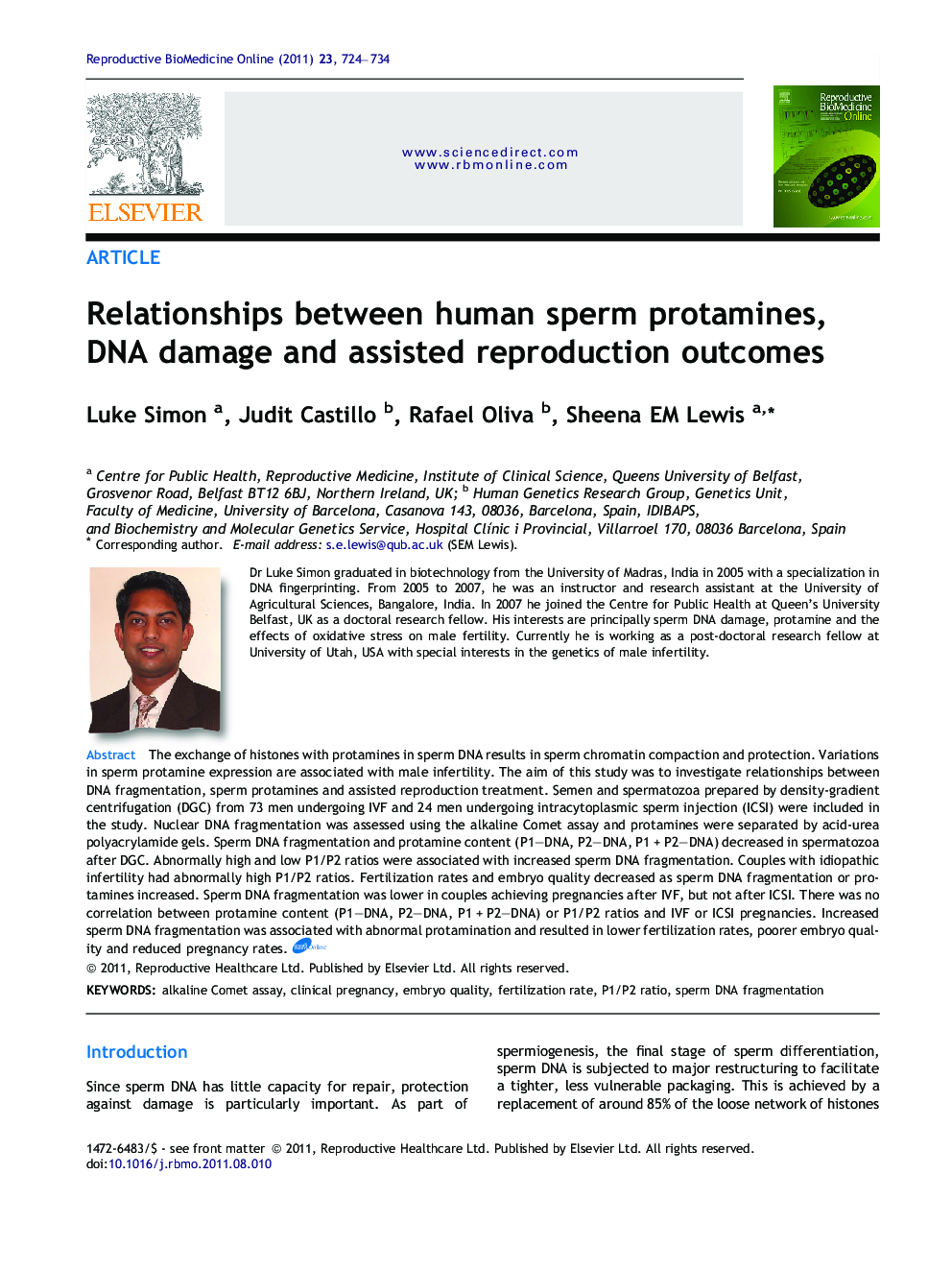| Article ID | Journal | Published Year | Pages | File Type |
|---|---|---|---|---|
| 3971228 | Reproductive BioMedicine Online | 2011 | 11 Pages |
The exchange of histones with protamines in sperm DNA results in sperm chromatin compaction and protection. Variations in sperm protamine expression are associated with male infertility. The aim of this study was to investigate relationships between DNA fragmentation, sperm protamines and assisted reproduction treatment. Semen and spermatozoa prepared by density-gradient centrifugation (DGC) from 73 men undergoing IVF and 24 men undergoing intracytoplasmic sperm injection (ICSI) were included in the study. Nuclear DNA fragmentation was assessed using the alkaline Comet assay and protamines were separated by acid-urea polyacrylamide gels. Sperm DNA fragmentation and protamine content (P1–DNA, P2–DNA, P1 + P2–DNA) decreased in spermatozoa after DGC. Abnormally high and low P1/P2 ratios were associated with increased sperm DNA fragmentation. Couples with idiopathic infertility had abnormally high P1/P2 ratios. Fertilization rates and embryo quality decreased as sperm DNA fragmentation or protamines increased. Sperm DNA fragmentation was lower in couples achieving pregnancies after IVF, but not after ICSI. There was no correlation between protamine content (P1–DNA, P2–DNA, P1 + P2–DNA) or P1/P2 ratios and IVF or ICSI pregnancies. Increased sperm DNA fragmentation was associated with abnormal protamination and resulted in lower fertilization rates, poorer embryo quality and reduced pregnancy rates.During late spermatogenesis, around 85% of the histones in the sperm nucleus are replaced with protamines. This process results in sperm chromatin compaction and also transcription silencing. In the human, protamines are comprised of two types: protamine-1 (P1) and protamine-2 (P2). Variations in sperm protamine expression are associated with male infertility. Similarly, sperm DNA integrity is important for male fertility. The aim of this study was to investigate relationships between DNA fragmentation, sperm protamines and assisted reproduction treatment. Semen and spermatozoa prepared by density-gradient centrifugation (DGC) from 73 men undergoing IVF and 24 men undergoing intracytoplasmic sperm injection (ICSI) were included in the study. Nuclear DNA fragmentation was assessed using the alkaline Comet assay and protamines were separated by acid-urea polyacrylamide gels. Sperm DNA fragmentation and protamine content decreased in spermatozoa after DGC. Abnormally high and low P1/P2 ratios were associated with increased sperm DNA fragmentation. Couples with idiopathic infertility had abnormally high P1/P2 ratios. Fertilization rates and embryo quality decreased as sperm DNA fragmentation or protamines increased. Sperm DNA fragmentation was lower in couples achieving pregnancies after IVF, but not after ICSI. There was no correlation between protamine content or P1/P2 ratios and IVF or ICSI pregnancies. Increased sperm DNA fragmentation was associated with abnormal protamination and resulted in lower fertilization rates, poorer embryo quality and reduced pregnancy rates.
